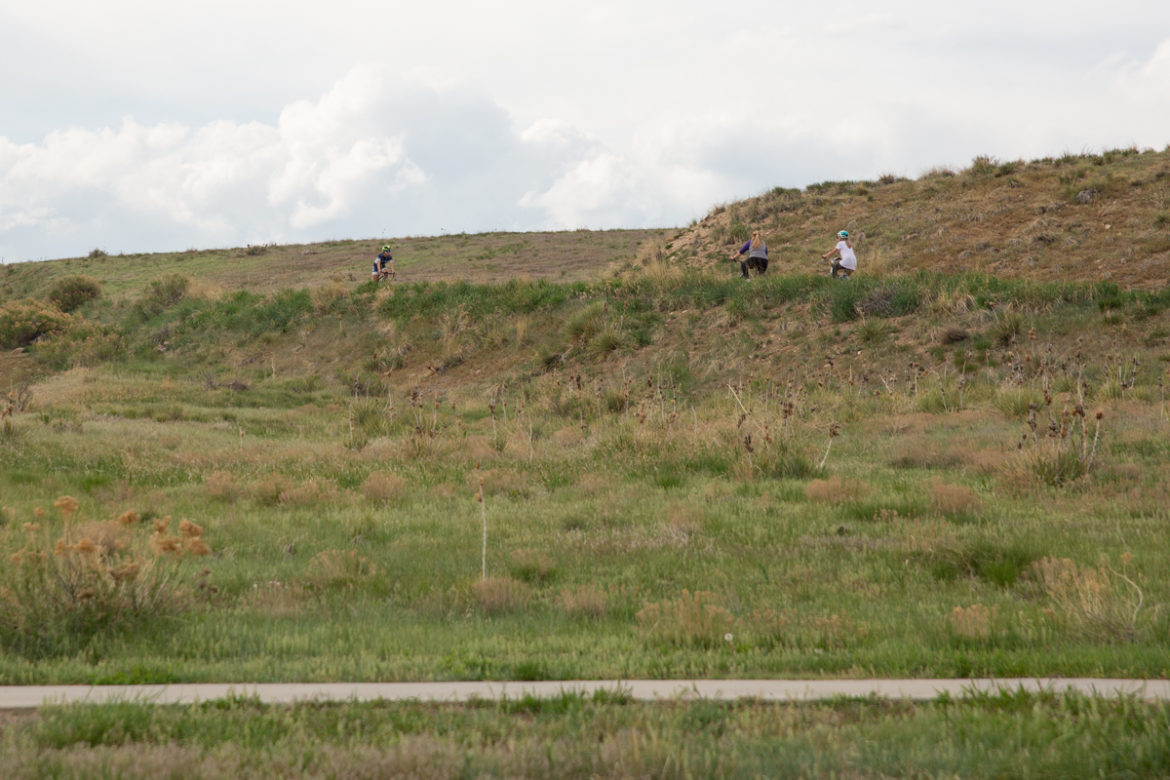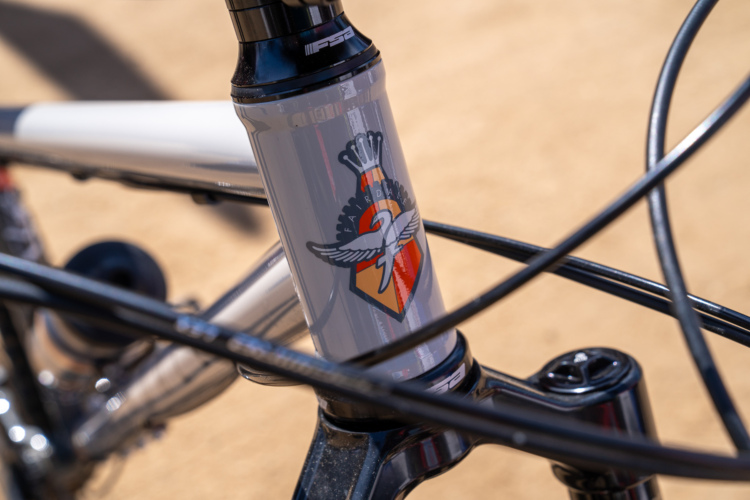
Early on in the US coronavirus outbreak we reached out to a few bike brands and asked how the pandemic, and seizure of the economy, was affecting them. They were all reluctant to speak at the time, mostly because they had no idea what was about to happen to their businesses. When the economy stops, most of us would assume that purchases on recreational items like bikes would also stop.
But, as we have settled into life at home, it turns out that bikes have become more important than ever. With nowhere to go, nothing to do, and fewer ways to exercise, bikes are the obvious choice for countless people.
Take a look around, and it’s evident. Bike shop service lead times have increased almost everywhere. The trailheads are busier than ever, and so are bike paths, along with neighborhood sidewalks and streets. People young and old are, as Aldo Morales says below, “rediscovering what a bicycle is.” It’s been pretty unexpected for a lot of us in the bike industry, but maybe some of the most welcome news amidst everything else happening right now.
Blair Clark, Canyon USA

Canyon is a global direct-to-consumer bike brand, based in Koblenz, Germany. Blair Clark, president of Canyon USA says that their assembly and delivery processes were already pretty compliant with Covid-19 guidelines, but they have been providing PPE and training on the topic to employees since the outbreak.
“At Canyon, we are very grateful for our business health and we want to protect our customers’ health,” says Clark.
“We have had tremendous sales activity in all categories, given that we are a direct-to-consumer disrupter of the bike industry, combined with the Shelter in Place orders which made cycling one of the few approved activities. Certainly we’ve had a greater percentage increase in fitness bikes and lower-end MTB, although those comprise a small portion of our total business, but they are important categories for us in our mission to inspire riders to ride.”
Aside from the increase in interest in fitness bikes, which are similar to road bikes, but with flat bars, Canyon says that the types of bikes customers are interested in hasn’t changed much, and they are still “selling as many top-shelf bikes as we can keep in stock,” like their Neuron SLX 9.0 LTD, or Strive CFR 9.0 LTD.
Matt Heitmann, The Pro’s Closet

Bike shops and manufacturers were under somewhat of a grey area when the pandemic first hit the U.S., but most states classified them as essential businesses. The Pro’s Closet in Boulder received the same designation.
The Pro’s Closet is a one-of-a-kind used bike retailer, where customers can submit photos of the bike they want to get rid of, and get a quote for either sale or trade-in. The company works with brands to acquire their demo fleets, along with thousands of customers selling used gear. When they take the bikes in, they service any needs, and then mark them as “Certified Pre-Owned.” It’s kind of like AutoNation, but for bikes.
People that could work from home went home at the start of Colorado’s stay-at-home order, but the business stayed fully functional for the most part. Like others, they weren’t sure what this would mean for selling, or acquiring bikes, but had some predictions.
“We thought we’d see more trends with road bikes than mountain bikes during this,” says Matt Heitmann, the marketing officer for The Pro’s Closet. Social distancing seemed easier with road bikes, and they can be ridden from home, but the mix stayed pretty regular for them. Usually, The Pro’s Closet sells about 40% road bikes, 40% mountain bikes, and triathlon, gravel, and cyclocross bikes make up the rest.
“What’s been interesting to see, is that we anticipated our average selling price (ASP) to go down thinking that we’d reach a broader audience than what we typically go after and that they would want to spend less, especially since they’re buying second-hand bikes, but our ASP has actually gone up, by about 30%, so that was a big eye opener for us. People are wanting to spend money on these bikes.”
There have been a lot of speculative reasons why more are gravitating toward bikes during the pandemic. Sure, gyms, and group sports are closed and it’s a safe and sanitary way to get exercise with your family, but Heitmann has another theory that fits.
“I have a theory called the Lipstick Theory, which is when the economy goes into a recession, or the economy gets hard, sales of lipstick skyrocket. It’s just something to buy that can make you feel good. I think what we’re seeing is something similar. People aren’t going to the gym anymore, they can’t go play golf, they can’t go swimming, they can’t play group sports, but they can buy a bike.” That’s where The Pro’s Closet fits in. People can usually justify spending more if the bike is used. Some of the monetary value has been lost, but it still comes with the assurance that it’s running 100%.
“It’s for your health and it’s an easy purchase to defend to your spouse or significant other.”
Aldo Morales, The Bike Barn

“We thought we were going to see a slowdown,” says Aldo Morales, assistant manager of the Bike barn in Cypress, Texas. Bike Barn is a chain of bike shops around the Houston area. They carry Trek and Specialized bikes.
Morales says that they took precautions like sanitizing more often, and discouraging customers from touching products, but carried on with operations for the most part since they were an essential business.
Slowly but surely, more and more people were coming in the doors to buy a bike.
“It went from us thinking we would be super slow, to being overwhelmed for a bit.”
Before they even realized, Morales says that they were selling 250% more than their major seasonal sale last year. Under normal times, The Bike Barn tries to have no more than a three day turnaround time with service, but it’s gone up to between two and three weeks now.
“It’s pretty wild to see. For us to be six times that amount…my mechanics are working like crazy.”
Morales says that they aren’t necessarily seeing a new type of customer since they are a popular chain of bike shops around a major city, but there is a greater proportion of brand new cyclists coming in than before.
“We’re guiding people into a new lifestyle,” he says. But, instead of throwing customers onto any and all bikes that they may be interested in, the sales people are narrowing down the customer’s interests more to try and find the right bike before a test ride. It means that it makes their job more time consuming, but the sales people, and mechanics have had decent paychecks lately, which is a major bonus in a time of economic uncertainty. Not to mention, more and more people are getting reacquainted with two wheels.
“I’ve been able to drive through Cypress and you see all these people on bikes. It’s cool. Everyone’s just rediscovering what a bicycle is.”
Lori Allington, new rider
For Lori Allington, a Littleton, Colorado resident, it came down to a 20th wedding anniversary for her and her husband. It was on a Wednesday. There was nothing to do and nowhere to go.
“I said, let’s go for a 20-mile bike ride,” says Allington. They grabbed some of their kids’ bikes out of the garage, rode the bike path to a reservoir, and took a picture together at the 20-mile mark.
Some of the inspiration might have come from a friend’s birthday party last year, who wanted to do a brewery bike ride. None of their friends wanted to do it, so they called it “Mike’s Stupid Bike Ride.” But, a day of drinking beer and riding around on bikes hardly turns sour.
“We ended up having a great time,” says Allington.
After their 20-mile anniversary ride, they decided to get new bikes. Allington and her husband consulted a friend in Kansas City who works in a bike shop, and they bought two new Treks from a shop in Colorado.

Allington said she’s not quite ready to get into road biking, or mountain biking. She works at Craig Hospital, a center specializing in spinal cord injury and traumatic brain injury rehabilitation, and they see their fair share of cyclists.
But, using bikes as a way to avoid driving, and making a day out of picking up craft beer seems like the perfect match. After their anniversary ride, she wanted to try another brewery up in Denver. When she put the directions into Google Maps, the estimated total said 9.8 miles, but she forgot to calculate the route for biking.
By the time they got to the brewery, filled their backpacks, and rode home, they’d clocked 36-miles. There was no doubting that they had earned their beers.
“It makes you feel a little better about drinking, and everyone is struggling with weight management. The biking helps that. You feel a little less guilty drinking the beers after you’ve done a good ride.”
Allington said that her time on a bike lately has given her a greater appreciation for cyclists, and made her more aware as a driver. She wants to continue riding after the pandemic.



















